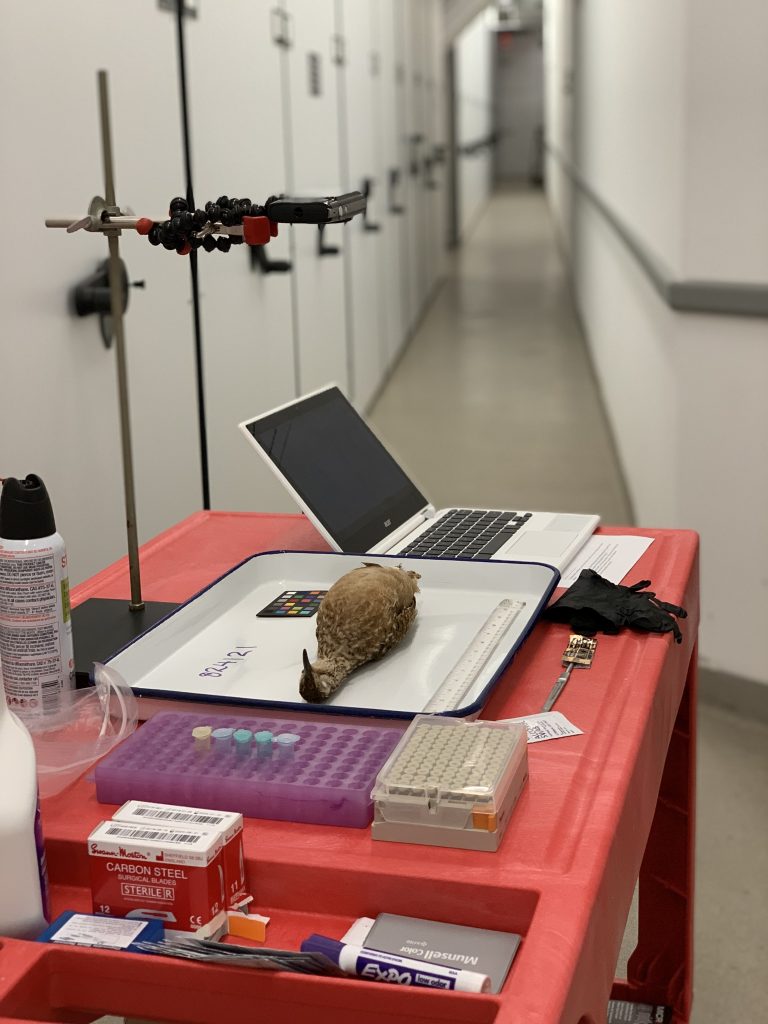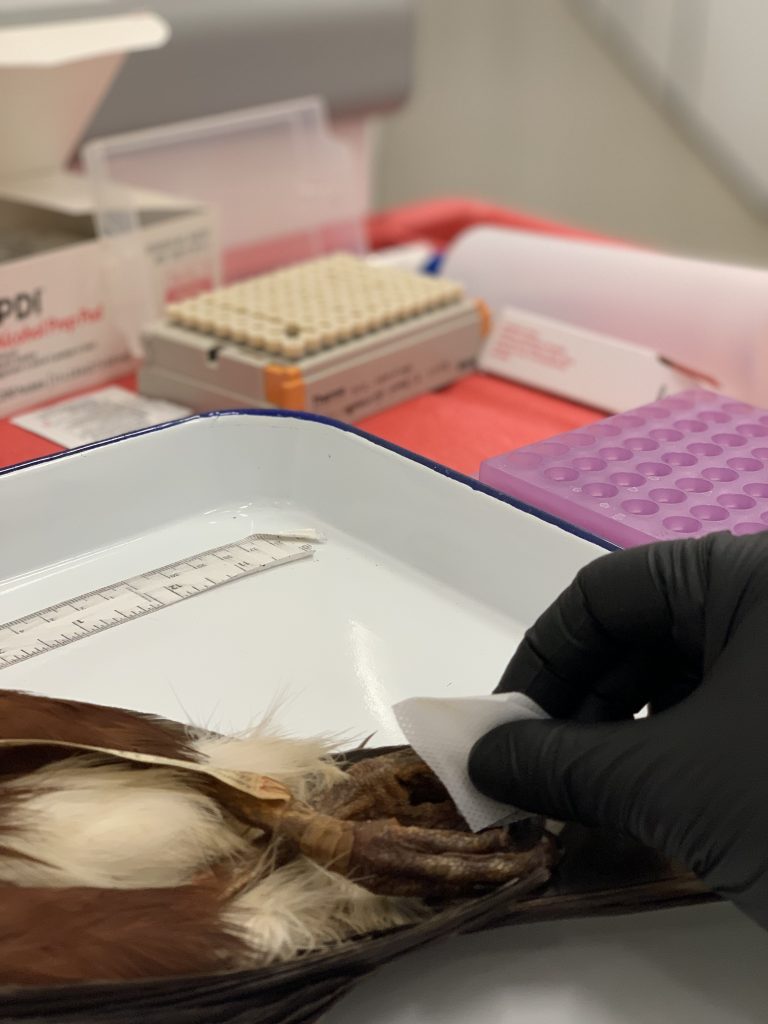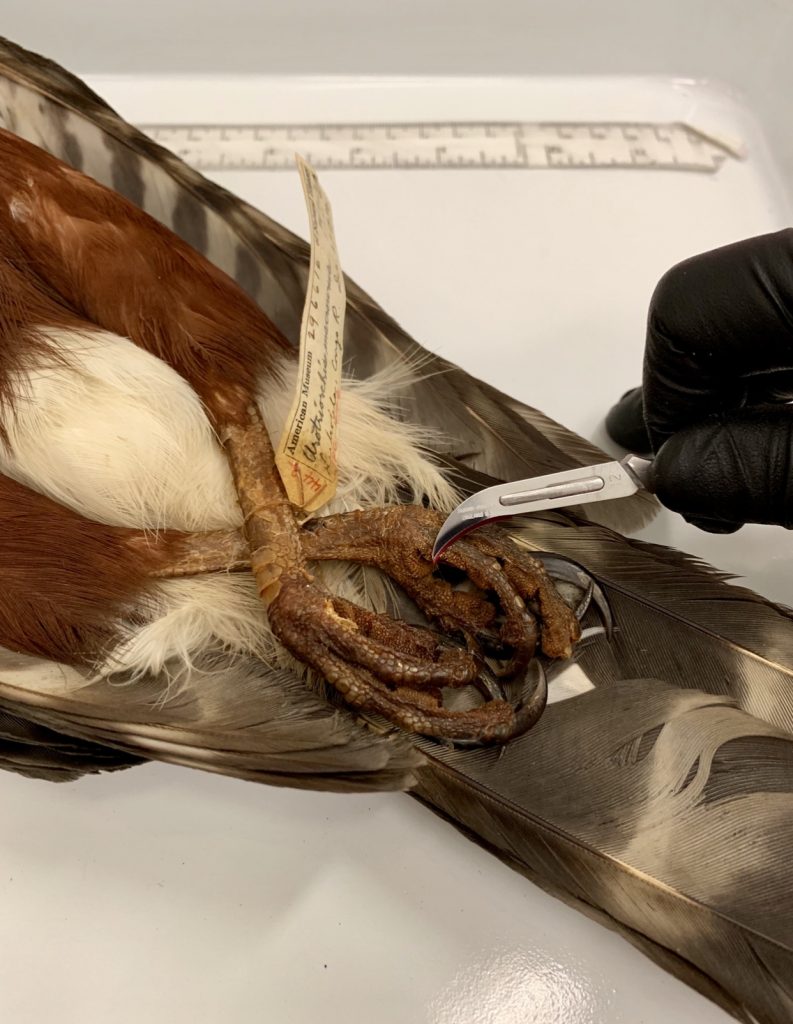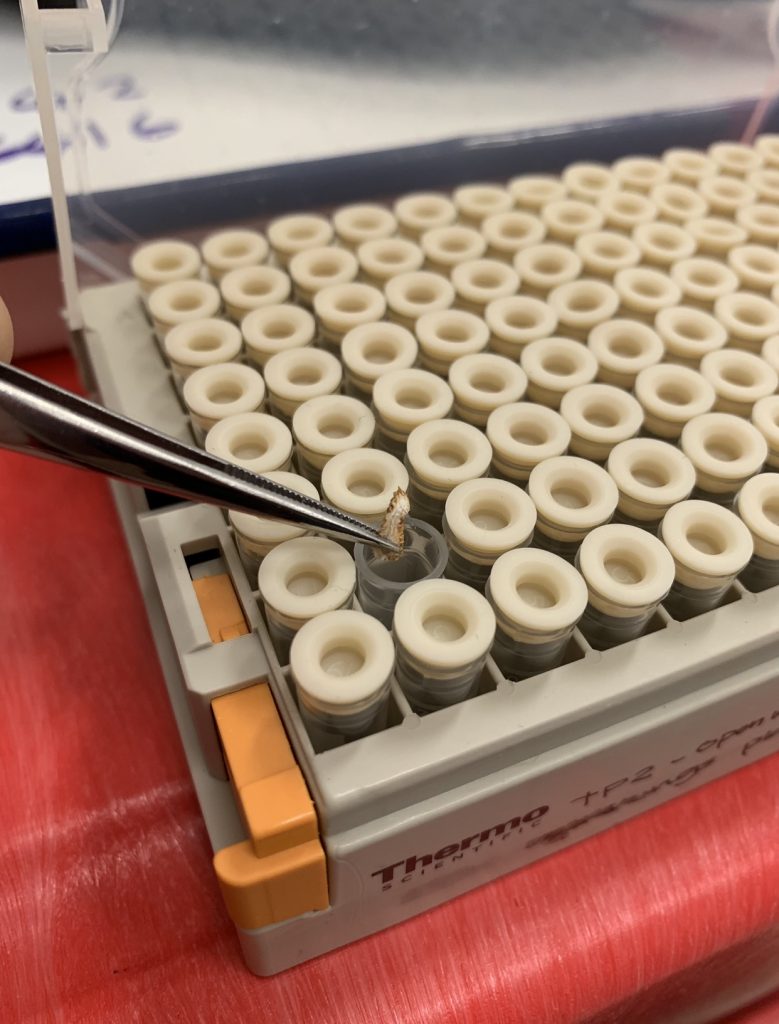Through collaborative efforts of researchers involved in the OpenWings Project, we have begun sampling voucher specimens at the American Museum of Natural History (AMNH), one of the largest collections of avian specimens in the world. The collection’s extensive coverage across species and geography will serve as one of the primary resources for completing an all bird species evolutionary tree.

Approximately 3,000 plus bird species are lacking modern genetic material (i.e., frozen tissue samples). The species that do not have tissue samples include extinct and vulnerable species, as well as species found in areas that are geographically difficult to access. To fill in these sampling gaps across the avian tree of life, we are using historical museum specimens that are up to 100+ years old.
To obtain historical genetic material, we cut small sections of skin from the toe pads of museum specimens, which contain DNA that will be isolated in a molecular laboratory. To encourage consistency and increase efficiency, we designed a mobile station for processing specimens that can readily move through the hundreds of rows and multiple floors of specimens at the AMNH. During specimen processing we image each bird and record metadata to have a connection between our genetic sample and the physical voucher it came from. The volume of historical specimens processed for this project will be on a scale larger than anything we have done before.


Alcohol swabs are used to clean the specimens prior to sampling. 
Cutting a small sample of toe pad from a Long-tailed Hawk (Urotriorchis macrourus).
Toe pad sample collected.